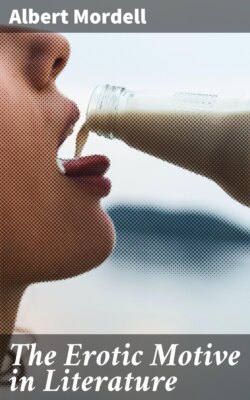Читать книгу The Erotic Motive in Literature - Albert Mordell - Страница 17
На сайте Литреса книга снята с продажи.
V
ОглавлениеTable of Contents
There are thousands of dreams, actual and artificial, reported in literature and history. Many of these may be analysed, but in most of them sufficient data are lacking to help us with the analysis. There are entire books cast in the form of dreams. There are Flaubert's Temptation of St. Anthony, Hauptmann's Hannele, Strindberg's Dream Play, Maeterlinck's The Blue Bird, and its sequel The Betrothal, Newman's Dream of Gerontius, William Morris's Dream of John Ball. There are the artificial visions of Dante, Bunyan and Langland. There are dreams recorded in Apuleius, Rabelais, Chaucer, the Mort D'Arthur, Swedenborg; in the Bible and the Talmud; in the histories of Herodotus, Xenophon, Suetonius, Dio Cassius; in Richard III and Cymbeline, in Paradise Lost and Robinson Crusoe and Hawthorne.
The dreams recorded in ancient and mediæval literature are in many cases actual ones. Dreams were formerly regarded as being prophetic of the future, but they only rarely have such value. For this reason most of the interpretations put on them by ancient sages are worthless for our purposes. Cicero in his On Divination has reported many dreams and given us arguments pro and con regarding their prophetic value. It is to be hoped that the scientific investigation of Freud into the interpretation of dreams will not give superstition a new weapon.
